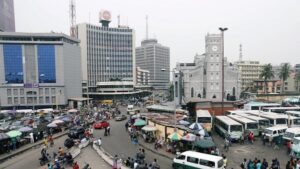Nigeria’s Economic Rebound Looking More Fragile, says NKC
The Nigerian economic rebound is now looking ever-more fragile, says NKC African Economics in a macroeconomic note.
It the risk has been trending upwards in recent weeks and the economic rebound during second half of 2020 now looks set to be very fragile.
NKC stated that the recent Purchasing Managers’ Index (PMI) suggests that economic activity has lost traction.
It recognised that the manufacturing PMI rebounded strongly during the previous two months, but declined again to 46.9 points in September.

Meanwhile, the non-manufacturing PMI fell even deeper into contraction territory to 41.9 points last month.
The latest Organisation for the Petroleum Exporting Countries (OPEC) figures also show that Nigeria is, somewhat surprisingly, still sticking to agreed-upon output reduction quotas, with oil production remaining below the 1.5 million bpd level in September.
This, according to NKC, coupled with still-low global oil prices, contributes to tight FX liquidity conditions, with adverse consequences for businesses sourcing goods from abroad.
In turn, tight FX liquidity, product shortages, higher fuel prices, and flooding serve to push inflation sharply higher, weighing on consumer demand, NKC added.
To complicate matters further, the firm said in the note that the escalation in widespread protests does not bode well for general business operating conditions.
Expressing concern, NKC said the situation has now taken a turn for the worse, and the outlook seems very murky.
“It is unclear how Abuja will respond to the recent escalation in protests which in itself is concerning.
“This now raises the likelihood that we could see a reversal in positive policy shifts such as the decision to deregulate fuel prices – the government has already started backtracking on electricity price hikes”, the firm explained.
NKC explained that a further weakening of the naira exchange rate would also be very unpopular at this stage.
Regrettably, many of these reforms should have been implemented at a much earlier stage, along with pro-business policies to drive diversification and growth, it added.
Read Also: IMF to disburse $1bn to Angola to address COVID-19 crisis
Nigeria’s Economic Rebound Looking More Fragile, says NKC